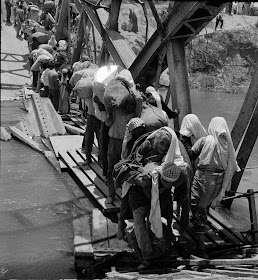 |
Anti-Semitism survey has the potential to mislead
Anti-Jewish rhetoric and the perception that Arabs are anti-Semitic is a blight on the contemporary Arab world, and poison for the Palestinian national movement. Palestinians must arrive at an agreement with Israel, and therefore have little hope of success if they are seen to proceed from an attitude of hatred.
That stipulated, the recent report on global anti-Semitism issued by the Anti-Defamation League (ADL) – an international Jewish non-government organisation – is simultaneously illuminating and potentially misleading. Its findings are hardly surprising: it says there are high levels of anti-Semitism globally, and particularly among Palestinians and, to a lesser extent, other Arabs.
The methodology is revealing. The ADL pollsters asked a series of questions regarding Jewish power, conduct, international influence, and loyalty to Israel. In most countries, that’s probably a reasonable barometer of anti-Jewish sentiment, because it may indicate irrational suspicion of Jews and fear or exaggeration of their supposed influence.
However, for Palestinians who have lived under Israeli occupation since 1967 with no end in sight, such questions can’t and don’t mean the same thing as they do to populations in which Jews are a minority.
It’s absurd to ask Palestinians in the occupied territories about Jewish power, loyalty to Israel, influence in the United States, or placing their own ethnic interests first. After all, few Palestinians can remember a time when Israel did not control virtually every aspect of their lives, entirely in the interests of the Israeli military and Jewish settlers. Jewish settlers are privileged by the Israeli state at the expense of Palestinians in a manner that has no present-day analogue.
What answers could one rationally expect? The ripple effects of the occupation naturally flow throughout the Arab world. There is an additional wrinkle: in the Arab world the word “Jew” connotes “Israeli”, which in turn connotes the Israeli military or government.
It’s unlikely that most Palestinians being asked these questions would imagine ordinary Jewish people and families going about their daily business.
This is not to suggest the numbers are wrong or that there isn’t a dreadful, central problem for the Palestinians and Arabs to overcome. Until they do, the Palestinian ability to achieve their national goals will be badly hamstrung.
The ADL survey is potentially misleading in at least two other ways.
It did not, of course, measure Jewish or Israeli attitudes towards Arabs and Muslims, which are likely to be similarly negative if the existing survey results are any guide. Further, in many countries anti-Semitism is part of a broader constellation of chauvinism and xenophobia. In the West in particular, Jews and Muslims tend to be hated by precisely the same people in precisely the same way.
In France, other European states, and even the United States, the correlation between anti-Semitism and Islamophobia is instantaneously obvious both in its manifest and latent rhetorical content and in the perpetration of hate crimes directed against both communities by the same gangs of racists. Hatred of Muslims by others globally is unlikely to be significantly less of a problem than anti-Semitism.
Nonetheless, as Islamists have increasingly adopted classic European anti-Semitic tropes, there’s no question that anti-Semitism has been spreading among Arabs and Muslims. Some Arab-left nationalists, too, spread this poison. While they don’t have much of a political constituency, they continue to define much of the political correctness in the Arab world, with Islamists often mimicking their fundamental worldview.
All data suggest that hatred of Arabs and Muslims is also growing among Jewish Israelis and their allies around the world. What we are looking at, then, is not a decontextualised problem or a cause of the conflict. It is undeniably a consequence of the conflict.
The Zionist movement was not formed because European Jews hated Palestinians or Arabs. The Palestinian and Arab resistance to Zionism was not based on anti-Semitism, but anticolonialism, and their reaction would’ve been the same had the colonists been from Japan or Bolivia.
The most dangerous confusion surrounding the hatred between Arabs and Jews that has arisen over the past century is that it is a cause of the conflict and not an effect. Indeed, supporters of Israel, especially when they want to try to rationalise or justify the occupation, invariably speak in terms of a “culture of hate” or “terrorism” among Palestinians and other Arabs, of a refusal to accept the very concept of a Jewish state merely because of deeply ingrained anti-Semitism.
This gesture, which is the substitution of an effect for a cause, is, in fact, a familiar technique of classical rhetoric, a narrative device familiar from an ancient Greek form of metonymy known as metalepsis.
During the second intifada, at a debate at Harvard Business School, law professor Alan Dershowitz raised the “culture of hate” canard, trying to explain why there was a conflict without acknowledging the central, defining reality of the occupation. I pointed out that he was cynically substituting what was manifestly a predictable and inevitable effect of such a bitter and prolonged conflict for one of its causes.
“I guess I’m a metalepsist, then,” he quipped. I assured him that he was actually just an ordinary sophist.
Because hatred between Jews and Arabs is a direct consequence of the Israeli-Palestinian conflict and the occupation – and not anything deeply seated in Jewish or Arab culture or religious beliefs – the key to ending this hate is, of course, ending the occupation and the conflict.
Hussein Ibish is a senior fellow at the American Task Force on Palestine and blogs at www. ibishblog.com. On Twitter: @ibishblog.
Hussein Ibish, PhD
Senior Fellow
American Task Force on Palestine
http://www.americantaskforce.org/
Twitter: @ibishblog
Blog: http://www.ibishblog.com/





















,+organizes+negatives+to+be+digitized+at+the+UNRWA+archive+library+in+Gaza+City,+northern+Gaza+Strip.jpg)
,+organizes+color+slides+.jpg)









